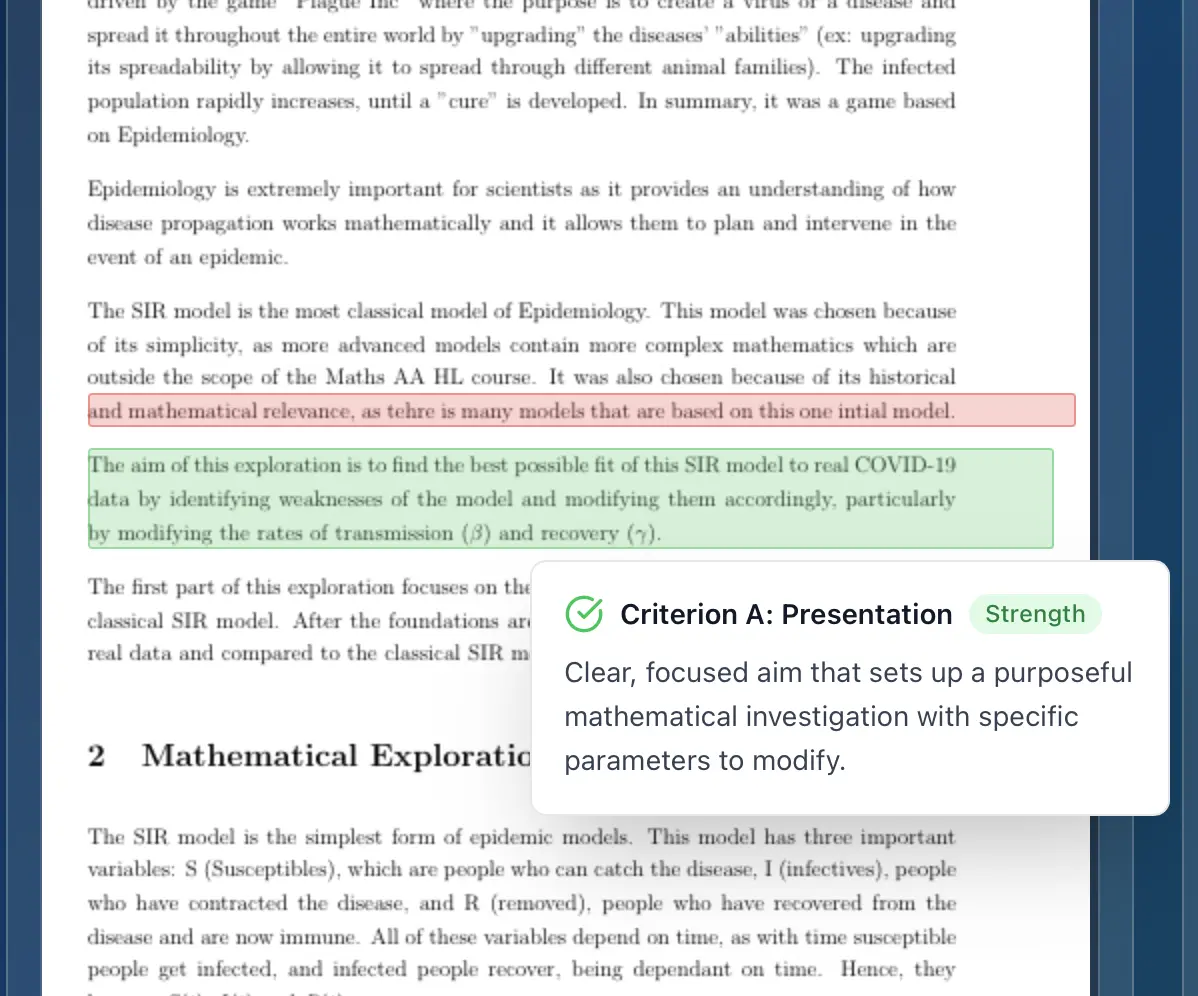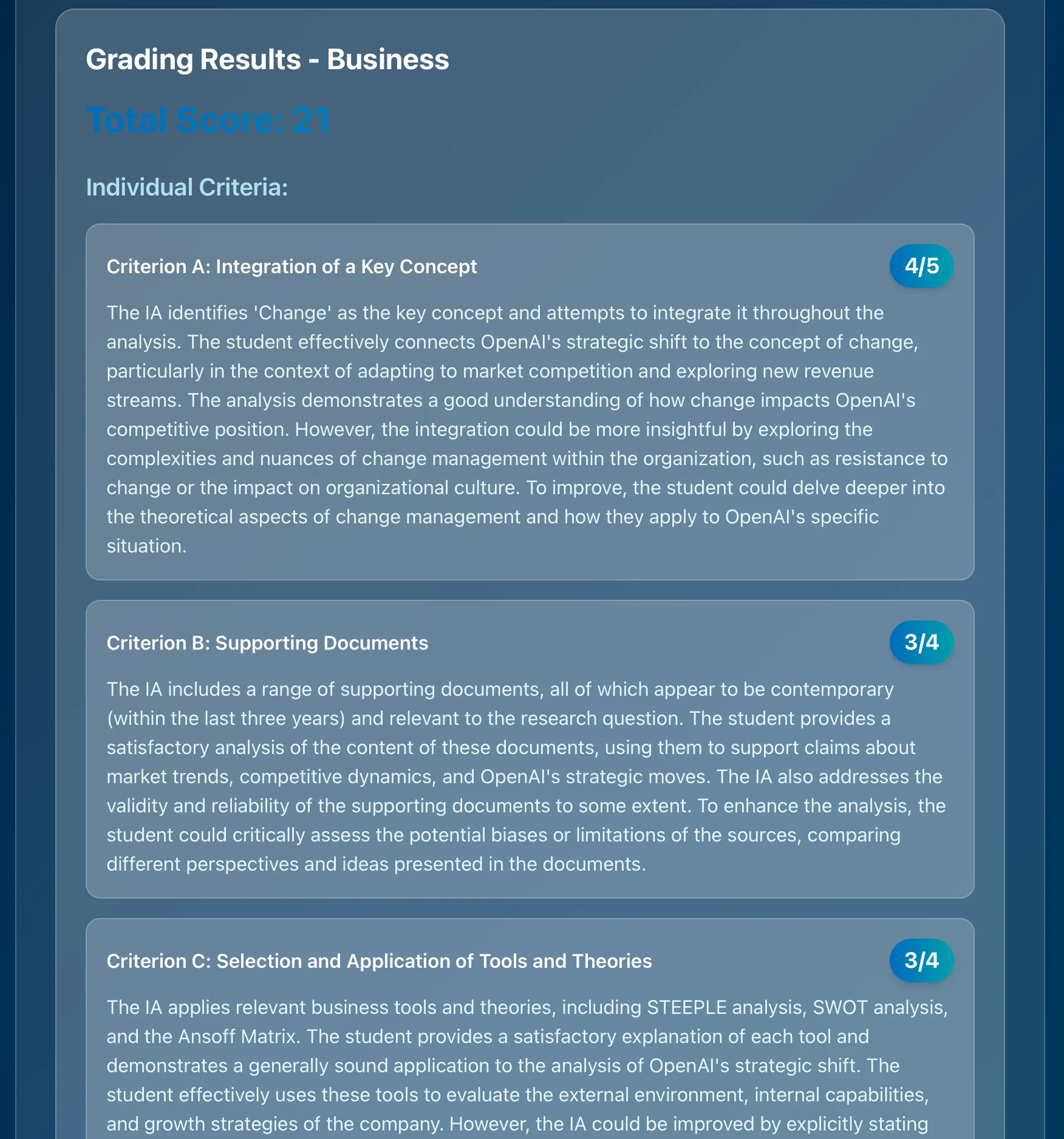The Ultimate Guide to Writing an IB History Extended Essay
Are you an IB student staring down the daunting task of writing your History Extended Essay? This guide is your comprehensive roadmap to success. We'll break down every step, from choosing the right topic to crafting a compelling argument, ensuring you understand the IB criteria and maximize your score. This ultimate guide will provide you with the knowledge and strategies to confidently tackle your IB History Extended Essay.
Introduction (Answer the Query Immediately)
The IB History Extended Essay is a challenging but rewarding opportunity to delve deeply into a historical topic that genuinely interests you. It's a 4,000-word research paper that counts towards your final IB diploma score. This guide will walk you through the entire process, providing actionable advice and strategies to help you choose a compelling topic, conduct thorough research, construct a strong argument, and ultimately, achieve a high grade. We'll cover everything from understanding the IB assessment criteria to avoiding common pitfalls, ensuring you're well-equipped to write an exceptional IB History Extended Essay. Whether you're just starting to brainstorm ideas or are already deep into the writing process, this guide will provide valuable insights and practical tips to help you succeed.
Struggling with IB Assessments?
Get instant, detailed feedback on your work with AI that understands IB criteria.

Core Content Sections
Choosing the Right Topic: Setting the Stage for Success
Selecting a compelling and manageable topic is the first and arguably most crucial step in writing your IB History Extended Essay. A well-chosen topic will not only make the research and writing process more enjoyable but also significantly increase your chances of achieving a high score.
- Relevance to the Human Past: The topic must relate to the human past. This seems obvious, but it's worth emphasizing. Don't stray into current affairs or speculative history.
- The 10-Year Rule: The event or period you're studying must be at least 10 years in the past. This rule ensures that sufficient historical perspective and sources are available.
- Personal Interest: Choose a topic that genuinely interests you. You'll be spending a significant amount of time researching and writing about it, so passion is key.
- Manageability: Avoid topics that are too broad or too narrow. A broad topic will be impossible to cover adequately in 4,000 words, while a narrow topic may lack sufficient sources.
- Availability of Sources: Ensure that there are sufficient primary and secondary sources available to support your research. Check your school library, local archives, and online databases.
Example of a Good Topic: "To what extent did the policies of Pericles contribute to the Golden Age of Athens?"
Example of a Bad Topic: "The impact of social media on modern politics" (Violates the 10-year rule and isn't history).
Formulating a Strong Research Question: The Guiding Light
Your research question is the central question that your essay will attempt to answer. It should be clear, focused, and arguable.
- Open-Ended: Avoid questions that can be answered with a simple "yes" or "no."
- Focused: The question should be specific enough to be addressed within the word limit.
- Arguable: There should be room for debate and different interpretations.
- Historical Significance: The question should address a topic of historical significance.
Example of a Good Research Question: "How significant was the role of propaganda in mobilizing support for the Nazi regime in Germany between 1933 and 1939?"
Example of a Bad Research Question: "Did World War II happen?" (Too simple and obvious).
Conducting Thorough Research: Unearthing the Evidence
Effective research is the foundation of a successful IB History Extended Essay.
- Primary Sources: These are original documents or artifacts from the period you're studying (e.g., letters, diaries, photographs, government documents).
- Secondary Sources: These are interpretations and analyses of primary sources (e.g., books, articles, documentaries).
- Source Evaluation: Critically evaluate your sources for bias, reliability, and perspective. Consider the author's background, purpose, and intended audience.
- Note-Taking: Take detailed and organized notes, including source information for proper citation.
- Citation: Use a consistent citation style (e.g., MLA, Chicago) and cite all sources accurately to avoid plagiarism.
Structuring Your Essay: Building a Coherent Argument
A well-structured essay is essential for presenting your argument effectively.
- Introduction: Introduce your topic, provide historical context, state your research question, and outline your argument.
- Body Paragraphs: Each paragraph should focus on a specific aspect of your argument, supported by evidence from your research.
- Counterarguments: Acknowledge and address opposing viewpoints to strengthen your argument.
- Conclusion: Summarize your findings, restate your argument, and discuss the implications of your research.
Writing Style and Tone: Clarity and Precision
Your writing should be clear, concise, and objective.
- Avoid Jargon: Use precise historical terminology, but avoid overly complex or obscure language.
- Third-Person Perspective: Write in the third person (e.g., "The evidence suggests..." rather than "I believe...").
- Formal Tone: Maintain a formal and academic tone throughout the essay.
- Proofreading: Carefully proofread your essay for grammar, spelling, and punctuation errors.
Common Challenges/Mistakes Section
Many students struggle with the IB History Extended Essay. Here are some common challenges and how to overcome them:
- Procrastination: Start early and break the task into smaller, manageable steps.
- Lack of Focus: Stay focused on your research question and avoid going off on tangents.
- Insufficient Research: Conduct thorough research and use a variety of sources.
- Weak Argument: Develop a clear and arguable thesis statement.
- Poor Structure: Organize your essay logically and use clear transitions.
- Plagiarism: Cite all sources accurately and avoid copying and pasting text.
- Ignoring Feedback: Take advantage of opportunities to get feedback from your teacher and peers.
Pro Tip: Get AI-Powered Grading
Stop second-guessing your grades. Get instant feedback aligned with official IB rubrics.

Advanced Tips/Strategies Section
For students aiming for the highest marks, consider these advanced strategies:
- Original Analysis: Go beyond simply summarizing sources and offer your own original analysis and interpretation.
- Historiography: Demonstrate an understanding of different historical perspectives and interpretations of your topic.
- Source Criticism: Critically evaluate the strengths and limitations of your sources in detail.
- Nuance and Complexity: Acknowledge the complexities and nuances of your topic and avoid oversimplification.
- Engage with the Debate: Position your argument within the broader historical debate surrounding your topic.
- Reflective Writing: Use the RPPF (Reflections on Planning and Progress Form) to demonstrate your engagement with the research process and your critical self-evaluation.
Technology and Modern Assessment Section
Technology is transforming the way we approach IB assessments, including the History Extended Essay. Online databases provide access to a wealth of primary and secondary sources, while digital tools can help with research, note-taking, and citation management.
Moreover, AI is playing an increasingly important role in assessment. Marksy, for example, is an AI grading assistant specifically designed for the International Baccalaureate. It helps teachers provide consistent, accurate, and detailed feedback on student work based on official IB rubrics. Marksy uses sophisticated algorithms to analyze essays and identify areas for improvement, saving teachers valuable time while ensuring fairness and consistency in grading.
Marksy provides rubric-aligned scoring, detailed criterion-by-criterion feedback, and suggestions for improvement. This allows students to understand exactly how to improve their work and achieve their full potential. The AI tools use official IB criteria to ensure accuracy and fairness, providing a reliable and objective assessment of student performance. For teachers, Marksy streamlines the grading workflow, freeing up time to focus on providing personalized instruction and support to their students.
Conclusion with Clear Next Steps
Writing an IB History Extended Essay is a challenging but ultimately rewarding experience. By following the advice in this guide, you can choose a compelling topic, conduct thorough research, construct a strong argument, and achieve a high score. Remember to start early, stay focused, and seek feedback along the way.
Next Steps:
- Brainstorm potential topics: Consider your interests and the availability of sources.
- Formulate a research question: Make sure it's clear, focused, and arguable.
- Conduct preliminary research: Explore the existing literature and identify potential sources.
- Create an outline: Organize your essay logically and plan your argument.
- Start writing: Break the task into smaller, manageable steps.
- Revise and edit: Proofread your essay carefully and seek feedback from your teacher and peers.
- Consider using Marksy: See how AI-powered feedback can help you refine your essay and maximize your score.
Ready to take your IB History Extended Essay to the next level? Try Marksy for free today and experience the power of AI-driven feedback! See how our platform can help you understand the IB criteria, identify areas for improvement, and achieve your academic goals. Teachers can also sign up for a free trial to streamline their grading workflow and provide more effective feedback to their students.